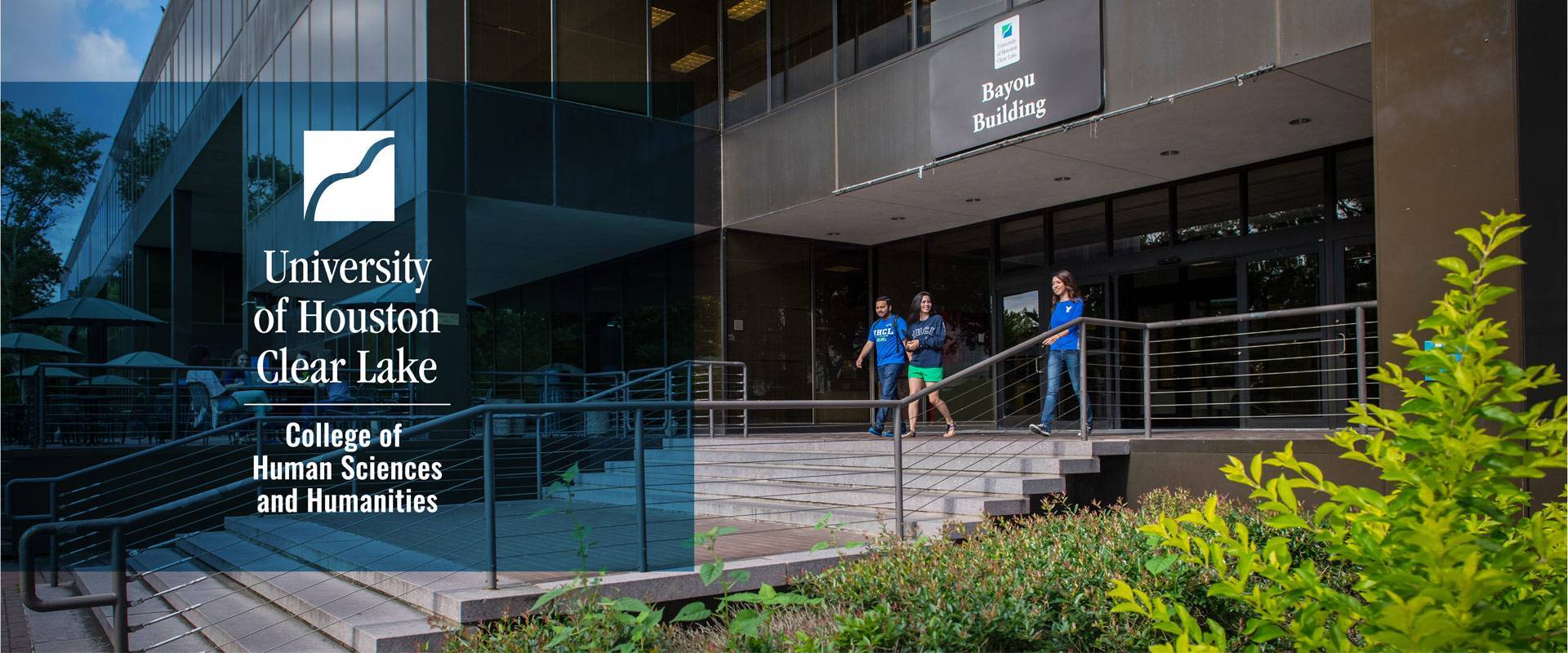UHCL Model Arab League teaches diplomacy, debate and peacemaking
March 6, 2019 | UHCL Staff

University of Houston-Clear Lake welcomed 150 students from six colleges and universities to
the Model Arab League conference held at the university Feb. 16-17. Ten UH-Clear Lake students participated
and chose to intensively research the Republic of Yemen and represent it at the conference.
“I think the students were attracted to the idea of representing Yemen because they
were appalled by the lack of international attention to the crisis in Yemen,” said Associate Professor in Anthropology and Cross-Cultural Studies Maria Curtis, who also co-advises the Model Arab League Student Organization. “Our students diligently
researched and studied Yemen, whose history is often misunderstood. Their objective
was to put aside their American mindset and take on the Arab perspective, along with
a passion to learn how complex humanitarian crises are mitigated,” she said. “It was
very challenging, but they studied hard and learned so much.”
Jasara Scates is completing his post-baccalaureate bachelor’s degree in social work
and worked on the Council of Economic Affairs Ministers. “The agenda is prepared by the National Council of U.S.-Arab Relations and each
council has four different topics to research,” he said. “The question is, how would
Yemen respond to those topics? The goal is to be recognized by the other countries
as Yemen. Negotiating politically as Yemen was difficult but we were able to represent
Yemen’s perspective and authentically introduce information about the scale of the
current crisis there.”
To gain a better economic perspective, Curtis explained, her students had prepared
by looking at maps of closed ports and other points of entry into the country. “The
environment in Yemen is very hostile, so the aid can’t get through to people,” she
said. “This is an opportunity to understand the complexities of international humanitarian
aid. Giving aid can be one of the easier parts of responding to crisis, but delivering
it in the midst of an ongoing war proves more difficult.”
“Part of my research in social work is looking at oppression and privilege,” Scates
said. “On this council, I had to ‘be’ from Yemen. I couldn’t be an American putting
American values on issues.”
Ross Hutchings, who is completing his bachelor’s degree in history, was on the Joint Defense Council and said that he wanted to represent Yemen to help bring awareness to that region.
“The media doesn’t tell the whole story. We aren’t seeing the extent of the deaths
from starvation,” he said. “As a history major, I studied the internal conflict within
Yemen. Even the United Nations considers it the worst humanitarian crisis in the last
100 years — even surpassing Syria.”
On the Joint Defense Council, Hutchings’ delegation wanted to try to recapture the
ports held by rebels and bring in more military aid. “Yemen is still a sovereign country
and it wants to regain power over itself,” he said. “Yemen wants to decide how its
own military aid should be delivered.”
Lauren Buchanan said that the biggest issue on the Council on Political Affairs was to find a political or diplomatic solution to Yemen’s military issues. “We need
to scale back military action and focus on diplomatic negotiation. As a history major,
working on this was really helpful and interesting.”
The research students did to prepare for this is different, Curtis said. “This is
an ongoing crisis. We are looking at different diplomatic choices in Yemen in real
time. This isn’t about researching in archives alone; this is about watching what’s
going on right now.”
As part of the Special Council on Women and Children, Jennifer Rodas studied the circumstances currently surrounding schools in Yemen.
“Schools are being bombed, and there are land mines around,” she said. “In order for
mothers to send their children to school, they must first be able to provide free
food, because at home, there’s no food.”
Rodas, who is working toward her bachelor’s in psychology, said that her research was useful to see a different point of view, and to learn
about the different reasons that cause people to suffer. “It was frustrating because
we couldn’t get to all the topics we wanted to cover,” she said. “We were just trying
to get the aid for food for children while the other states were discussing implementation
of educational goals, for us and for Yemen we needed first to address the widespread
starvation and malnutrition kids are facing.”
“As Americans, we aren’t accustomed to feeling powerless,” Scates said. “We were trying
to call people out and make them listen. We wanted to demonstrate that issues like
starvation or new outbreaks of cholera do not remain tucked within national borders.
When one country suffers, cycles of illness and poverty widen and impact others regions.”
This is the third year in a row that UHCL has hosted the event. Students from University
of Arkansas at Little Rock, Kennesaw State University, Texas State University, University
of Houston, University of Houston-Downtown and Houston Community College participated.
For more information about UHCL’s undergraduate degree in anthropology or graduate
degree in cross-cultural and global studies, visit www.uhcl.edu/human-sciences-humanities/departments/social-cultural-sciences/cross-cultural-studies.
About the Author:
Recent entries by
October 18 2022
Better technology transforms campus safety: Police Chief demonstrates SafeZone to students
October 14 2022
Student's skill with drones takes chicken turtle research to new heights
October 11 2022
Planting event to help UHCL restore native plants to campus, support environmental sustainability







